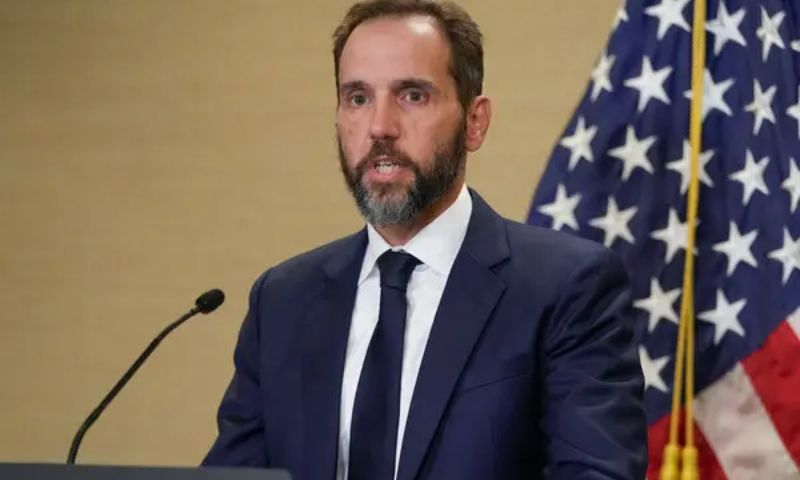WASHINGTON: Federal prosecutors have rebuffed former President Donald Trump’s attempt to have election conspiracy charges dismissed based on claims of presidential immunity.
The prosecutors, led by special counsel Jack Smith, filed a 54-page motion rejecting the argument that Trump is immune from prosecution for actions taken while in office. In a strong stance, the prosecution stated, “No one in this country, not even the president, is above the law.”
The charges against Trump pertain to allegations of conspiring to subvert the results of the November 2020 election, which was won by Democrat Joe Biden. Trump, who is the frontrunner for the 2024 Republican presidential nomination, is set to go on trial in Washington in March of the next year.
In a motion two weeks ago, Trump’s legal team argued for the charges to be dismissed, asserting that the former president is “absolutely immune from criminal prosecution.” Prosecutors dismissed this argument, emphasizing that Trump, like any other citizen, is subject to federal criminal laws, and no court has recognized absolute criminal immunity for former presidents.
The implications of the “unbounded immunity theory” raised by Trump’s defence are described as “startling” by prosecutors. They contend that such a defence would grant immunity to a former president who accepts bribes for government contracts or even sells national security secrets to a foreign adversary.
While the assertion of presidential immunity is seen as a legal long shot, it could potentially delay the trial as the matter could make its way to the Supreme Court, which currently has a conservative majority.
Trump’s efforts to use the “absolute immunity” defence have been rejected by lower courts, but the Supreme Court has not directly ruled on whether a former president is immune from criminal prosecution. Donald Trump is the first former U.S. president to face criminal charges.
Trump’s legal team cited a Supreme Court case involving former President Richard Nixon to support their argument for “absolute immunity.” They argued that the law provides this immunity to the president for acts within the “outer perimeter” of their official responsibility. Trump’s attorneys contended that he had a responsibility to ensure election integrity and challenge the 2020 election results.
The case before US District Judge Tanya Chutkan accuses Trump of conspiracy to defraud the United States and conspiracy to obstruct an official proceeding related to the January 6, 2021 attack on the joint session of Congress by a mob of his supporters.
Apart from this case, Trump faces other criminal charges, including racketeering charges in Georgia for allegedly conspiring to overturn election results and a trial in Florida in May 2024 on charges related to mishandling government documents. Additionally, Trump and his two eldest sons are involved in a civil fraud trial in New York for allegedly inflating the value of their real estate assets to secure more favorable loans and insurance terms.























